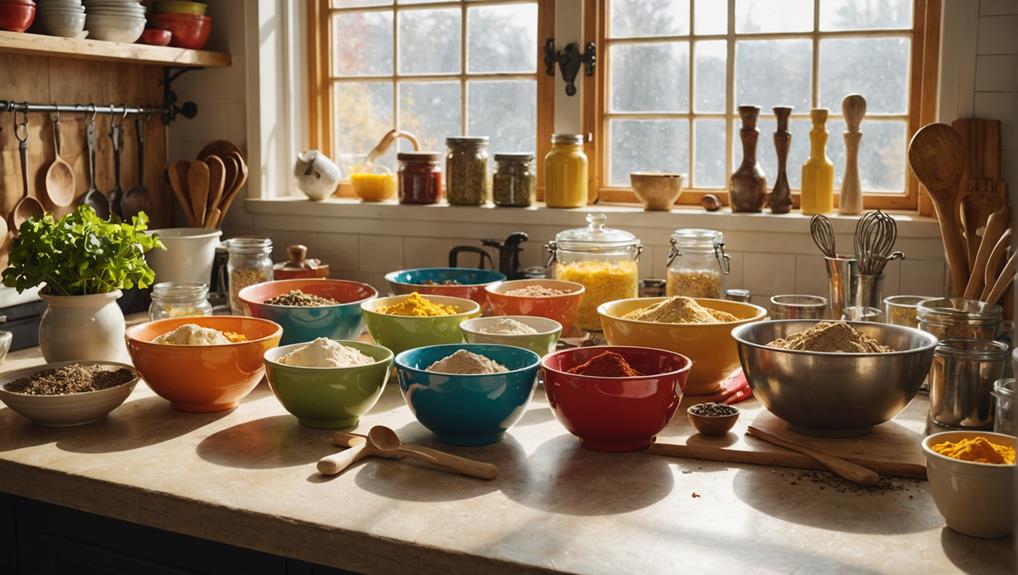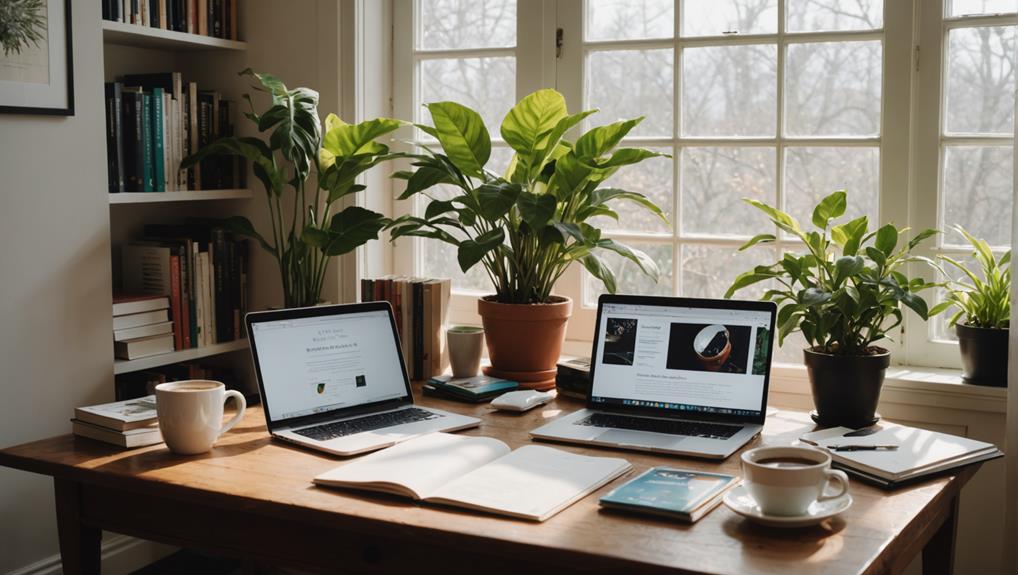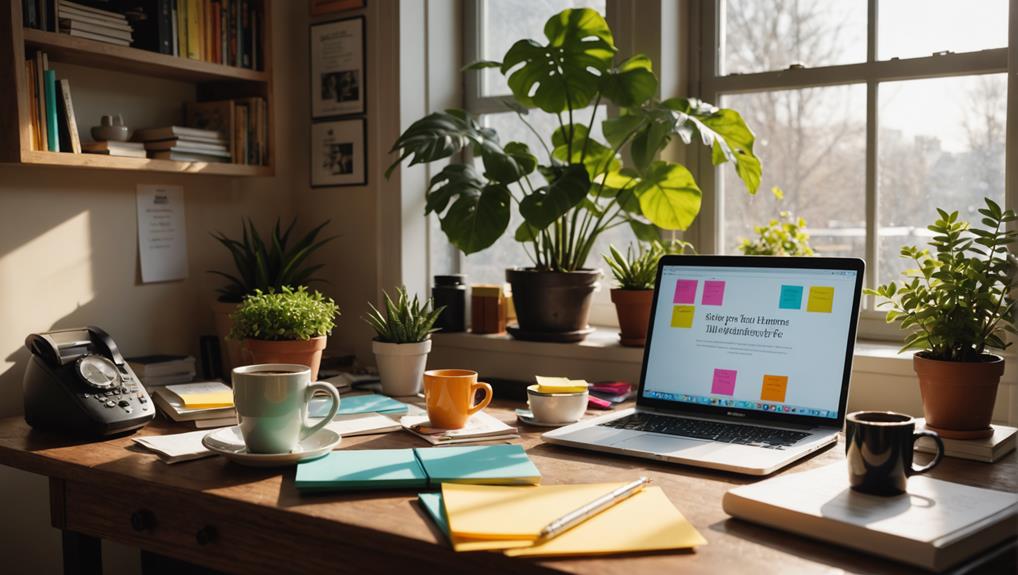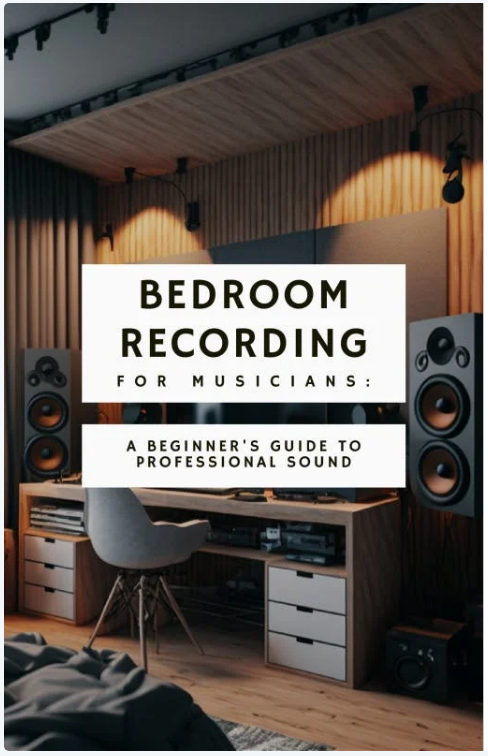You can definitely master audio at home without any degree. Start by setting up a digital audio workstation (DAW) and invest in a high-quality audio interface. Use studio monitors for clarity and treat your space acoustically for the best results. Get to know basic mixing techniques, like balancing elements and layering sounds. With practice, you'll polish your tracks to a professional level. Plus, online courses and certifications can boost your skills and career potential. If you keep exploring, you'll find even more tips and resources to help you on your mastering journey.
Key Takeaways
- Invest in essential mastering equipment like a DAW, audio interface, and quality studio monitors for optimal sound quality.
- Utilize online resources and courses to learn mastering techniques without needing a formal degree.
- Gain practical experience by experimenting with your music projects and seeking feedback from peers.
- Build a strong portfolio showcasing your mastering work to attract potential clients and employers.
- Network with industry professionals to create opportunities and connections that can enhance your mastering skills.
Essential Home Mastering Equipment
When setting up your home mastering studio, think of it as crafting a sonic laboratory where every detail matters.
Start with a robust digital audio workstation (DAW), as it's the heart of your mastering setup. Pair it with a high-quality audio interface to guarantee pristine sound quality.
Investing in reliable studio monitors, like the KRK Rokit or Yamaha HS series, will greatly enhance your mixing and mastering, providing clear, precise audio output. Additionally, consider implementing acoustic treatment to optimize your listening environment, assuring that your mixes translate well across different playback systems.
Don't overlook the importance of critical listening; a solid pair of headphones, such as the Audio-Technica ATH-M50x, is essential, especially in untreated spaces.
To truly refine your sound, incorporate essential mastering plugins like equalizers, compressors, and stereo imaging tools—options like iZotope Ozone or FabFilter Pro-L2 are industry favorites.
Understanding Audio Basics
Understanding audio basics is vital for anyone looking to master sound effectively. At the heart of audio are sound waves—vibrations traveling through the air that you can measure in frequency (Hertz) and amplitude (decibels). Your human hearing range typically spans from 20 Hz to 20 kHz, with your ears being most sensitive around 2-5 kHz, where the magic of speech lies.
To capture the best sound, it's important to reflect on recording space and preparation because a well-set environment can greatly influence audio quality.
When you're recording audio, the quality hinges on using the right equipment. Microphones play an essential role by capturing sound accurately, while speakers bring that sound to life, making your choices between dynamic and condenser models significant.
Different audio formats, like WAV and MP3, also impact sound quality, with WAV offering richer detail at the cost of larger file sizes.
Once you've got your recordings, basic audio mixing becomes your next step. It involves adjusting levels, panning, and adding effects to create a balanced sound that enhances the overall audio quality.
Mixing Techniques for Beginners

Now that you've grasped the fundamentals of audio, it's time to explore mixing techniques that will elevate your sound game. Think of mixing like crafting a cocktail; it's all about balancing flavors. As a beginner, start with basic ratios, typically a 2:1 mix of your chosen spirit to mixer.
To enhance your mixing process, consider implementing organized session templates for efficiency and using reference tracks to maintain sound quality and coherence to streamline your mixing process.
You'll want to practice using a cocktail shaker, employing the "shake and strain" method to create that smooth, polished finish. When you get comfortable, try layering drinks by pouring different liquids over the back of a spoon. This not only looks visually appealing but showcases your mixing skills.
Don't forget the muddling technique! Pressing herbs or fruits releases their flavors and adds vibrancy to your drinks. It's easy to practice at home and can really enhance the overall taste.
Finally, garnishes play an essential role. A simple citrus twist or fresh herb can elevate your cocktail, making it not just tasty but also eye-catching.
Mixing techniques might seem intimidating at first, but with practice and creativity, you'll soon impress yourself and others with your delicious concoctions.
Mastering Your Tracks
Mastering your tracks is where the magic really happens in music production. It's the final polish that transforms your hard work into a professional sound.
To truly master your audio, you'll want to enhance your skills beyond just music. Consider these high-demand areas:
- Digital marketing: Learn how to promote your music effectively. Incorporating essential mixing workflow tips can also greatly improve your overall sound quality.
- Graphic design: Create eye-catching visuals for album covers and social media.
- IT support: Troubleshoot tech issues that might arise during your production process.
You don't need a degree; practical experience and proficiency in relevant tools are what matter. Online courses from platforms like Coursera and Udemy can help you tailor your skills to your desired role, whether it's sound engineering or music marketing.
Building a strong portfolio is essential. Showcase your skills and previous projects to potential employers, making it easier for them to see your capabilities.
Resources for Continued Learning

Continued learning is essential in today's fast-paced world, especially in creative fields like music production.
You've got plenty of online resources at your fingertips, from platforms like Coursera and Udemy, which offer courses in digital marketing, graphic design, and more. These courses allow you to gain relevant skills without needing a formal degree.
Certifications can be game-changers for your career.
Consider pursuing CompTIA Security+, Google Analytics, or Adobe Certified Expert credentials. In tech and creative industries, these can enhance your job prospects and often hold more weight than traditional degrees.
Don't underestimate the power of networking, either.
Conclusion
Now that you've gathered your gear and unraveled the mysteries of audio, picture yourself in your cozy home studio, headphones snug, as you transform your tracks into polished gems. With each tweak and adjustment, you're not just mastering; you're crafting a sonic journey that resonates. As you dive deeper into learning, let your passion guide you—your unique sound is waiting to emerge, shimmering like sunlight breaking through the clouds. Embrace the process, and let your creativity soar!


